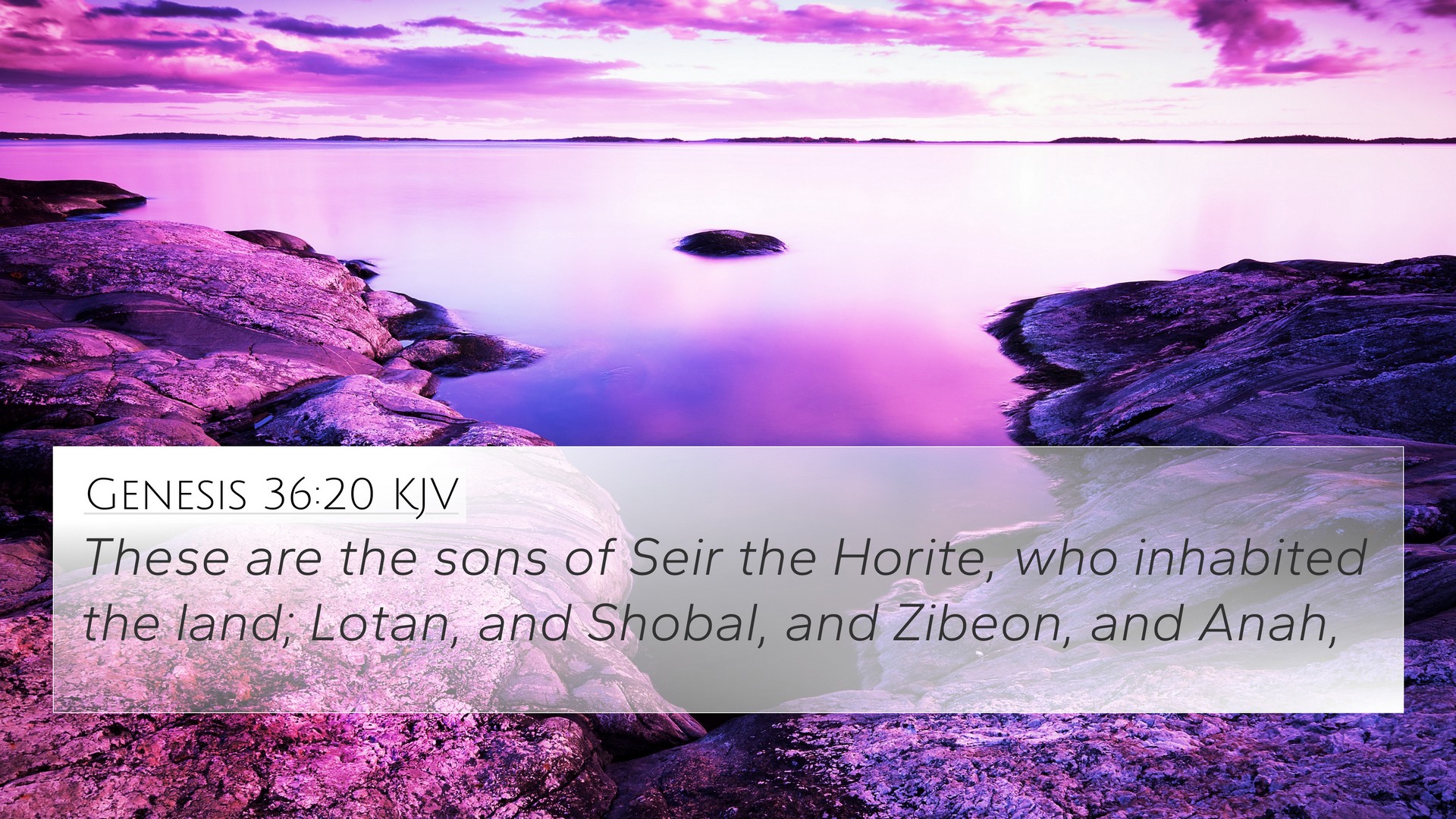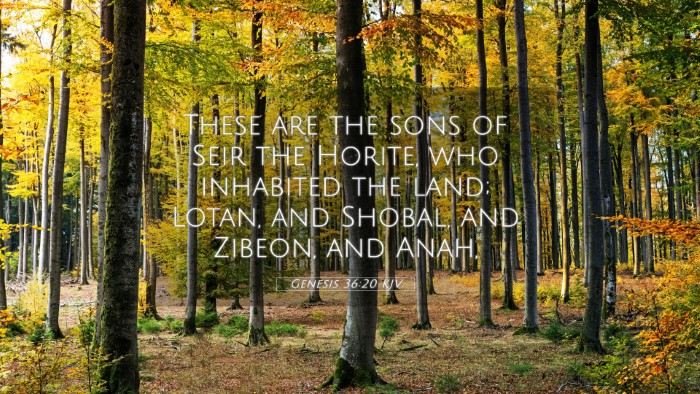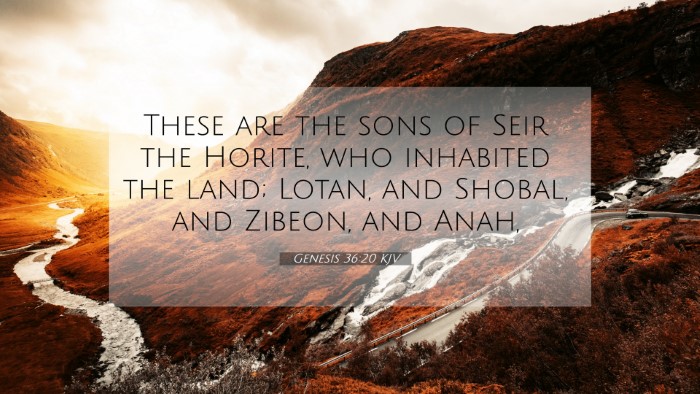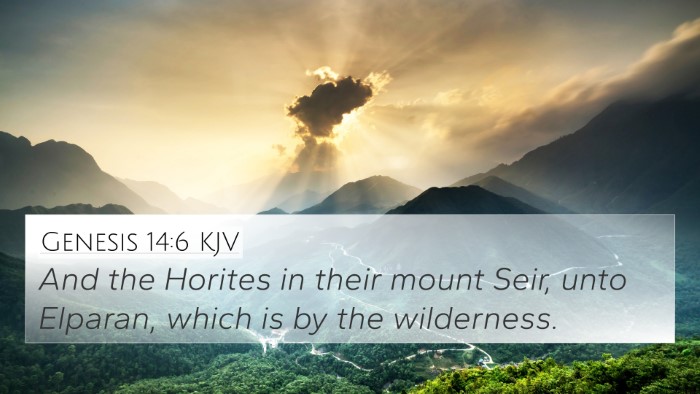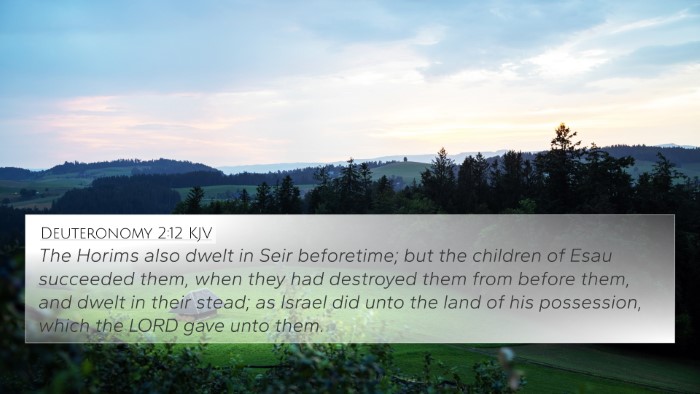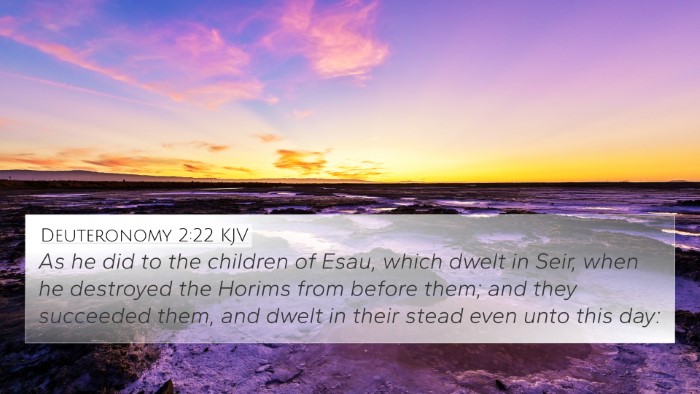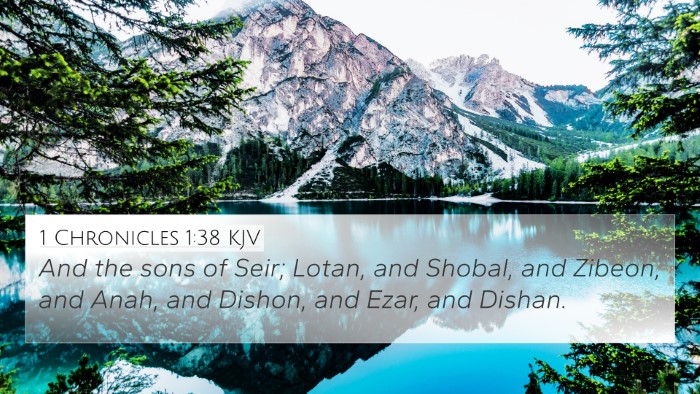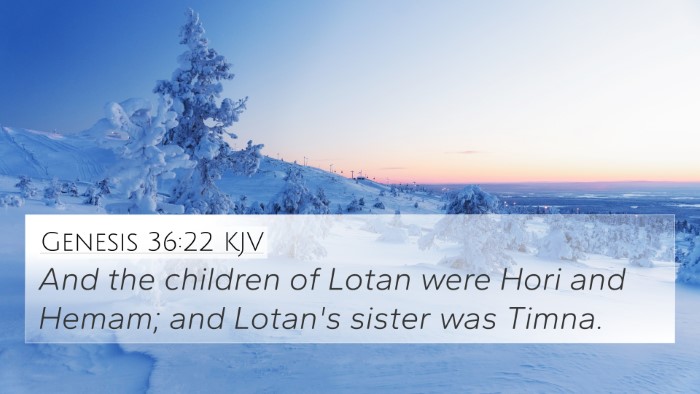Genesis 36:20 states: "These are the children of Seir the Horite, who inhabited the land; Lotan, and Shobal, and Zibeon, and Anah." This verse outlines the descendants of Seir, establishing the lineage of the Horites who inhabited the region before the Israelites. This passage serves as an important link in understanding the biblical geography and the historical context of the regions contested during the time of the Old Testament.
Summary of Genesis 36:20
This verse introduces the descendants of Seir the Horite, providing insight into the inhabitants of Edom and their ancestry. The listing of names signifies the continuation of Seir's lineage, which plays a critical role in the narratives surrounding the Israelites, particularly in their interactions with surrounding nations.
Interpretations from Public Domain Commentaries
Matthew Henry: Henry emphasizes the significance of genealogies in Scripture as they validate God's promise. He notes that the Horites are descendants of Seir, indicating the presence of other nations that the Israelites would encounter. This verse reminds readers of God's sovereignty over all nations and His plan throughout history.
Albert Barnes: Barnes discusses the purpose of these genealogies in demonstrating God's providential care and the positioning of nations. He highlights that the careful recording of these names serves to establish the rightful claim to the land and illustrates the diverse backgrounds that shaped the biblical narrative. His commentary also notes the importance of recognizing these groups in the larger story of God's people.
Adam Clarke: Clarke points out the cultural and historical contexts surrounding the Horites. He explains that understanding who the Horites were aids in the comprehension of God’s unfolding plan, especially regarding the land of Edom, which is relevant in the subsequent stories of the Israelites. Clarke's analysis brings forward the idea that the mention of these names is not merely historical but serves a deeper theological purpose.
Bible Verse Cross-References
- Genesis 14:6 - Referring to the Horites, indicating their presence in the territory of Edom.
- Genesis 36:30 - Further elaborating on the chiefs of the Horites, contributing to the understanding of their social structure.
- Deuteronomy 2:12 - Mentioning the Horites as inhabitants of Seir, which God permitted Israel to take possession of.
- Genesis 36:31 - Discussing the kings that reigned in Edom before the Israelites, providing historical context to the governance of the region.
- Jeremiah 49:7 - A prophetic reference to Edom that highlights the enduring significance of Seir's descendants in God's plans.
- Obadiah 1:1 - A prophecy against Edom ties back to the history established in earlier texts.
- Romans 9:13 - Discussing the nation of Edom as relevant in God's sovereignty and election.
Thematic Bible Verse Connections
This verse connects with several themes in Scripture, particularly concerning:
- Genealogy and Heritage: Exploring how lineage affects identity and God's promises.
- Divine Sovereignty: Understanding how God uses various nations, including the Edomites, to fulfill His purposes.
- Covenantal History: Establishing the history of nations that relate to Israel's covenant with God.
Cross-Referencing Biblical Texts
Cross-referencing Bible verses is a crucial tool for a deeper understanding of the connections in Scripture. The use of a Bible concordance or Bible cross-reference guide can facilitate this process by identifying relationships between passages, and recognizing recurring themes.
By employing effective cross-referencing methods, readers can discover how various biblical accounts interweave to create a larger narrative that reflects God's plan for humanity.
Bible Cross-Reference Study Tools
For those seeking to engage in a more comprehensive study of Scripture:
- Bible Reference Resources: Utilize concordances and cross-reference tools to explore the relationships between various verses.
- Cross-Reference Bible Study: Implement methods for comparing texts to uncover deeper meanings and insights.
- Identifying Connections: Explore links between Old and New Testament teachings for a holistic understanding of biblical messages.
Conclusion
In summary, Genesis 36:20 serves as a pivotal point in the narrative of biblical genealogies, showcasing the power of cross-referencing in understanding the broader context of God's plan. By examining this verse through public domain commentaries and utilizing effective Bible study tools, believers can unlock profound truths of Scripture and witness the intricate tapestry of God's work through different generations.
